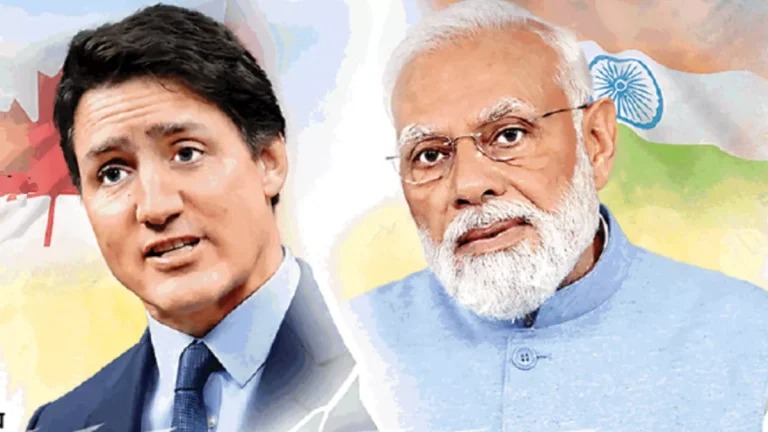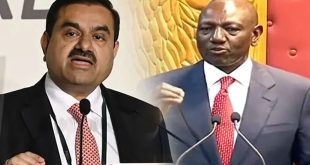Canada Double character: Vivek Katju. Recently, some Khalistani supporters attacked devotees in a Hindu temple in Brampton, Canada. Prime Minister Narendra Modi has strongly condemned this incident. He also criticized the efforts of consular staff to hinder their work in helping the victims of the incident.
Prime Minister Modi rightly emphasized that it is Canada's responsibility to ensure the safety of diplomats and consular staff. Even before this, India has warned Canada several times about the atrocities of Khalistan supporters.
At the same time, Canada is avoiding such cases under the guise of right to expression. Although the Brampton violence has been condemned by the Prime Minister of Canada and other leaders, it is more than a formality and formality, as there is no remote possibility of any strict action being taken against Khalistan supporters.
India-Canada relations are currently going through a very delicate phase and from time to time new fronts of conflict are opening between the two countries. A few days ago, Canada's Deputy Foreign Minister David Morrison had created a stir by naming Indian agents and Home Minister Amit Shah for targeting people in Canada. Indian Foreign Ministry spokesperson described the allegations as absurd and baseless.
Canada making such unexpected allegations against one of India's most senior ministers is no less than a challenge to the country's reputation. In such a situation, the attitude of Modi government is absolutely right that it is trying to give a befitting reply to Canada not only on the allegations related to Amit Shah but also on other aspects.
In this, not only tough rhetoric will be effective, but some strict steps will also have to be taken against Canada. Even though this creates some difficulties for Indians, it may cause the country to suffer some losses on the trade and commerce front. There has been a tradition in India for centuries that protection of honor is paramount.
After the killing of Khalistani terrorist Hardeep Singh Nijjar in June 2023, there has been a new turn in the relations between the two countries. Canada claims that between August 2023 and October 12, 2024, the national security advisors of both the countries met six times in other parts of the world including Delhi regarding the investigation of the massacre and other information.
Canada even exaggerated by claiming that Indian diplomats had sent information about Canadian citizens whom they believed to be anti-India. Referring to the Home Minister in the same context, he said that this information was used by criminals to target Canadian citizens.
In this connection, Canada talked about withdrawing the privileges given to Indian diplomats for questioning, due to which the situation worsened so much that India decided to recall six diplomats including Indian High Commissioner Sanjay Verma from Canada on October 14. Canada's intention behind declaring these diplomats as 'Persons of Interest' was that they may play a suspicious role in participating in crime or sharing information. This was so provocative that India ordered six Canadian diplomats to leave the country.
Canada claims that it has provided evidence to India ranging from the Nijjar massacre to the suspicious activities of diplomats. At the same time, India is denying this. Canada has detained four Indian nationals in the Nijjar murder case, but they will have to present evidence against them in court.
The information received by the Indian side may be disclosed from time to time. Indian authorities should think about this. This will help refute Canada's allegations. India has also accused Canada of violating the Vienna Convention on wiretapping and video recording of conversations of its diplomats.
After the Brampton violence, Canada will have to clarify on this matter. Since Canada has taken a decidedly anti-India stance, its allies are busy creating a narrative that makes India uncomfortable. Newspapers like Washington Post are helping them in this.
In such situations, India will have to use all its options for diplomacy and show the whole world, especially the countries of the Global South, that it is a responsible country and that Canada's allegations against it are completely false and misleading. The Brampton violence should be considered an example of Canada's double standards.
However, in this regard Canada has to be wary of the attitude of the I-5 countries (US, UK, Australia, New Zealand and Canada) which protect each other by exchanging intelligence information. Although there has been a change of power in America, there will definitely be some difference in its perspective on this matter.
Canada's stance on many issues is full of hypocrisy. For example, his approach to the Kanishka plane crash of 1985 was racial. It should also be noted that there can be no scope for raising challenges to the territorial integrity and sovereignty of other countries under the guise of the right to freedom of expression in Canada. If necessary, India should put all these aspects before the global community through diplomatic campaign.
India cannot ignore the diplomatic challenges posed by Canada's allegations and it is clear that Trudeau's attitude towards India is not going to change even after the Brampton violence. Therefore, India should move beyond rhetoric and move towards strong action. Although the Brampton violence was unanimously condemned by all parties in Canada, Trudeau's allegations may unite all parties as he seeks to prove to Canadians that the alleged activities are bad for their country. Create danger.
 look news india
look news india

